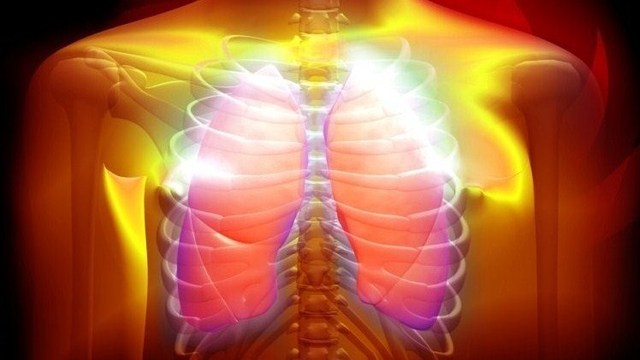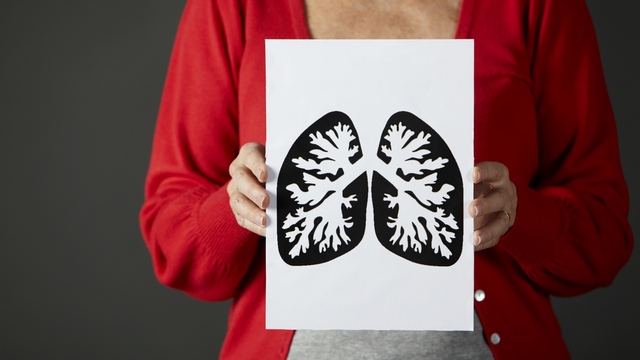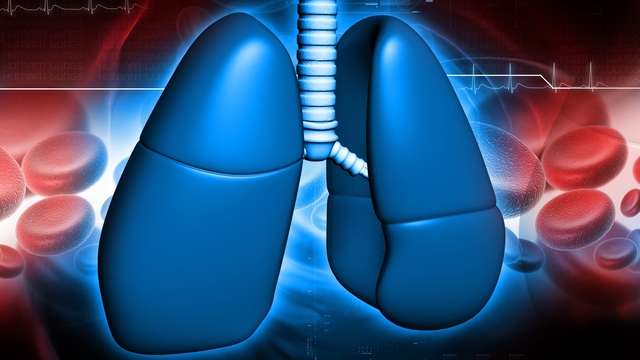 Photo: Getty Images
Photo: Getty Images
Chronic obstructive pulmonary disease (COPD) is the fourth leading cause of death in the United States. This condition prevents the lungs from working effectively which makes breathing difficult. Over 12 million people in the U.S. are known to have COPD and many more have it but have not been diagnosed. The symptoms of COPD come on slowly and get progressively worse. Because there is no cure, scientists are working to find ways to prevent COPD from developing.
A new study published in the Journal of Periodontology suggested that taking good care of teeth and gums can reduce the risk of COPD and other respiratory infections. Poor dental care, including the failure to brush and floss teeth, can lead to bacteria collecting on teeth as well as infections in the gums. When we breathe in, bacteria from the mouth and upper throat can travel with the air into the lungs and cause infections there. This can increase the risk of developing COPD as a result of repeated infections that can weaken the lungs.
COPD is often caused by smoking or exposure to other lung irritants such as air pollution, fumes from chemicals, or dust. Inside the lungs there are thousands of tiny round air sacs. When you breathe in, these sacs expand as they fill with air. Oxygen passes through the thin membrane wall of the sacs into the blood. At the same time, waste products including carbon dioxide pass from the blood into the sacs. When you breathe out, the sacs contract which helps push the air out of your lungs.
In patients with COPD, these air sacs become less elastic and lose their ability to expand and contract. Sometimes the thin membrane wall between sacs becomes damaged so that several small sacs merge into one larger sac. Damaged air sacs are less able to expand to take air in or contract to push air out. The airways in the lungs also produce small amounts of mucus to moisturize the tissues. In COPD, the airways may produce too much mucus. This can clog the narrow passages and keep air from getting through. Patients with COPD often feel tightness in the chest, shortness of breath, wheezing, and may cough up a lot of excess mucus.
The recent study included 200 people between the ages of 20 and 60 who had at least half of their natural teeth. Half were healthy patients with no history of respiratory disease. The others were patients in the hospital due to a respiratory condition such as COPD, pneumonia, or severe bronchitis. When researchers examined the teeth and gums of all participants to check periodontal health, they found that patients who had existing lung conditions also had worse dental and gum health than the people who were healthy.
Donald S. Clem, DDS, President of the American Academy of Periodontology said, "By working with your dentist or periodontist, you may actually be able to prevent or diminish the progression of harmful diseases such as pneumonia or COPD.” Dentists including Clem recommend going to the dentist to have your teeth and gums checked every year in addition to daily brushing and flossing.
In addition to this new connection to COPD, poor dental health and gum disease have also been associated with other chronic conditions including rheumatoid arthritis, diabetes, and heart disease. This study emphasizes that dental health goes beyond the appearance and function of your teeth. It can affect the health of your entire body.
Sources:
Science Daily
National Heart Lung and Blood Institute






Add a Comment1 Comments
Thanks for instructed me about chronic obstructive pulmonary disease. This site is helpful to understand that how this disease are side effective for us. If people live careful to follow some instructions then they can get healthy teeth and live COPD free.
September 28, 2011 - 2:05amhttp://www.dentalimplantsadvisor.com/
This Comment